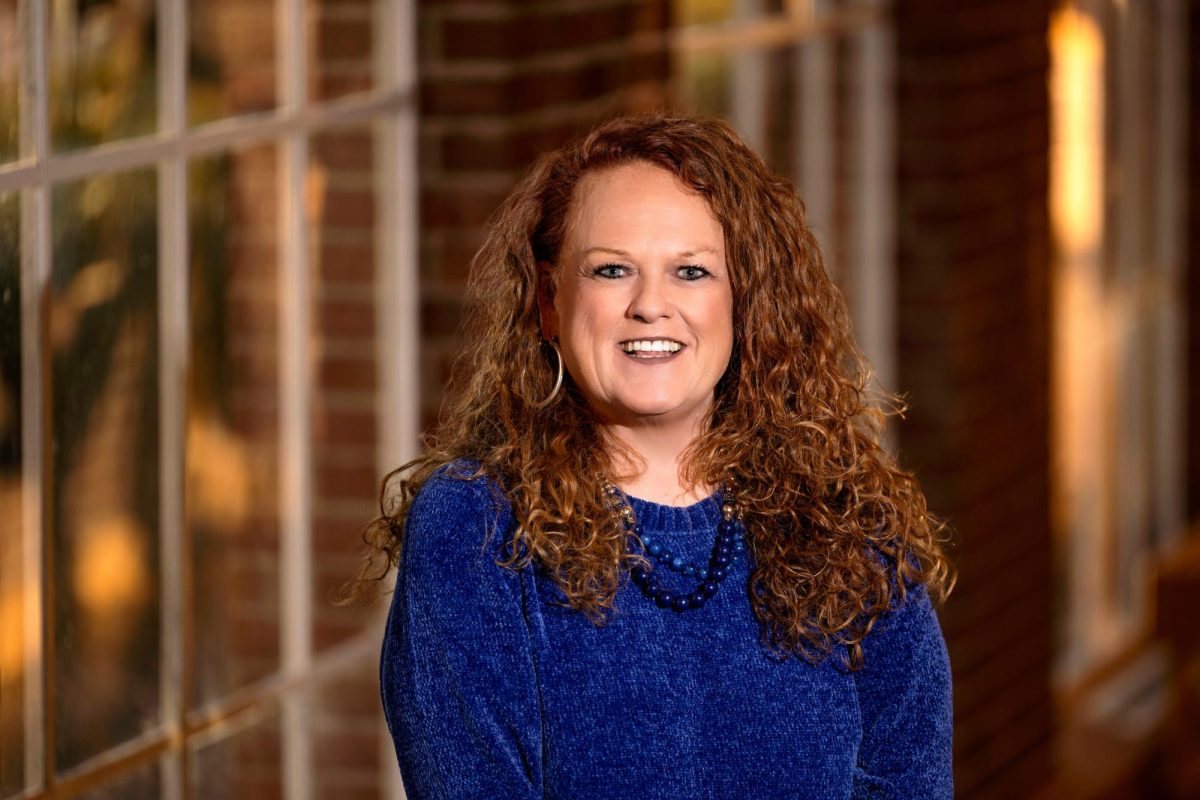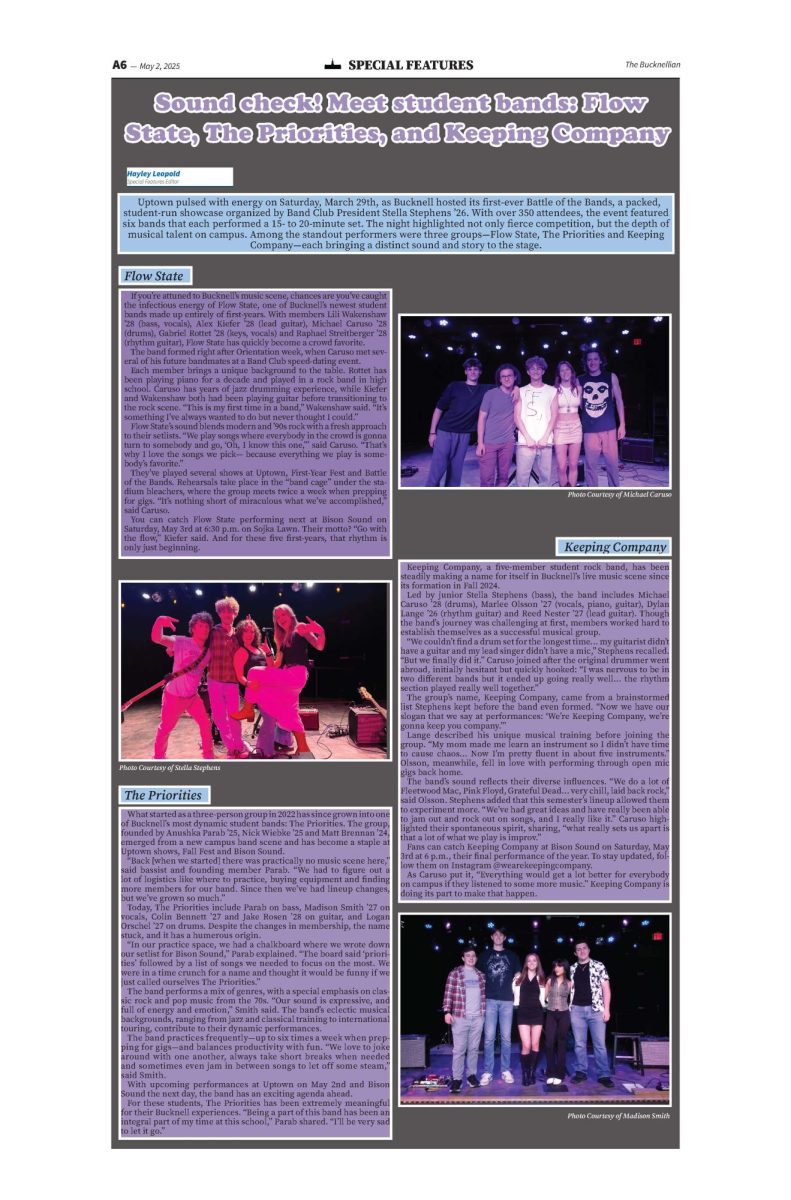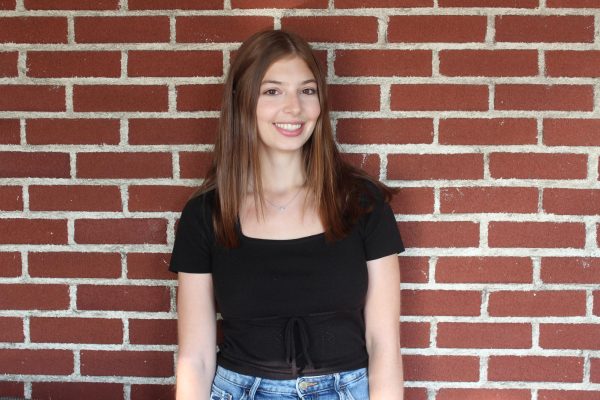Bucknell’s Interpersonal Violence Prevention and Advocacy Office is in the midst of a powerful transformation. Under new leadership and with renewed energy, the office is expanding its reach and redefining its role on campus, aiming to be a sanctuary of support, empowerment and education.
Director Molly Harris and Survivor Advocate Matthea Mitchell, both new to their roles, are the duo leading this transition. For Mitchell, who joined Bucknell last August, the role pairs naturally with her education and interests. “I got my undergraduate degree at Susquehanna University in Psychology, and now I’m getting my Masters in Social Work at Bloomsburg University,” she explained. “This position fell under a lot of social work field experience, but also a good balance of work and school. It’s been a good experience so far!”
Harris, who began as Director in March, brings a depth of experience from both college- and community-based settings. As an undergraduate at Juniata College, she was deeply involved in a similar office, sparking her interest in the field. “I just really fell in love with the work,” Harris said. After graduation, she worked with AmeriCorps VISTA and then at a domestic violence resource center in various roles, including legal advocacy and community outreach. “I was ready to transition back into higher education, and when I found this job at Bucknell, I thought it was perfect.”
At its core, the Interpersonal Violence Prevention and Advocacy Office offers confidential, student-centered support to those impacted by sexual assault, dating violence, stalking and other forms of interpersonal harm.
Mitchell, whose role is primarily on the advocacy side, described the office as “a confidential resource if students want to disclose any instances of interpersonal violence— or even if they just want to talk to someone.” Importantly, disclosures made in this office do not automatically initiate a Title IX report, giving students more agency in how they choose to move forward.
Support can take many forms: no-contact orders, academic accommodations, emergency housing and referrals to counseling or medical services, to name a few. “We’re here to walk them through all their options,” Mitchell added.
Harris echoed this sentiment. “One of my core philosophies is taking a trauma-informed but also survivor-centered approach to advocacy. When a student comes in, they are really in the driver’s seat,” she said. “Interpersonal violence is all about power and control, so we don’t want to take any more of that away by telling students what to do.”
Both Harris and Mitchell emphasized the importance of being visible and accessible to students, not just when they’re in crisis. “You don’t want them to come in just because they have a disclosure,” Mitchell explained. “Just going and meeting them at Seventh Street Café or the Bison, putting faces to names— that’s how you build trust.”
Harris sees this relationship-building as key to a broader cultural shift. “I don’t expect every student to be passionate about this work,” she said, “but I would like all students to not be indifferent when it comes to interpersonal violence.”
To that end, the office is focusing on three programming pillars: education about interpersonal violence, conversations around consent and bystander intervention. Harris also hopes to expand training efforts beyond first-year orientation. “The biggest piece of feedback I got coming in was that students get a lot of information their first year, and then the programming kind of falls off. I want to sustain that engagement.”
April is Sexual Assault Awareness Month, and the office has been active on multiple fronts. Mitchell pointed to Teal Tuesday throughout the month and Denim Day on Wednesday, April 30 as examples of passive support efforts that allow students to show solidarity with survivors. “We passed out teal ribbons on April 1—Sexual Assault Awareness Day of Action—and we’ve been tabling all month long.”
A major highlight was the April 15 screening of “The Hunting Ground,” a documentary looking at sexual assault on college campuses, followed by a Title IX panel. “We’ve got an amazing group of panelists,” Harris said, listing representatives from Title IX, the Women’s Resource Center, Counseling Services and faculty. Students were invited to submit anonymous questions ahead of time.
Harris also praised campus collaborations, like the SpeakUp event “Cross Cultural Consent and Trivia” and the Women’s Resource Center’s three-part “Phoenix: From Ashes to Empowerment” event, where students can anonymously share stories of trauma and healing.
Mitchell summed up the office’s ethos in four simple words: “You are not alone.”
For Harris, the message is also about empowerment. “Whatever they want to do, we will always believe students when they come in and make a disclosure to us,” she said. “Unfortunately, that is not always the case in broader systems like law enforcement. There’s too much stigma around survivors, not enough accountability for abusers. But in this office, students will always be supported.”
Even if students don’t know how they want to handle their situations yet, the door is open. “We can be a sounding board. We’re here to listen,” Harris added.
Though the office is still in a transition period, Harris sees that as an opportunity. “I’m always open to feedback. Even if something happened last year and we weren’t here, I want to know. This is a resource for students, and it needs to be shaped by their voices.”
That student-centered vision – supportive, inclusive and always evolving – defines the new direction of the Interpersonal Violence Prevention and Advocacy Office. It’s not just about responding to trauma. It’s about building a campus culture where students are empowered, connected and never alone.






















